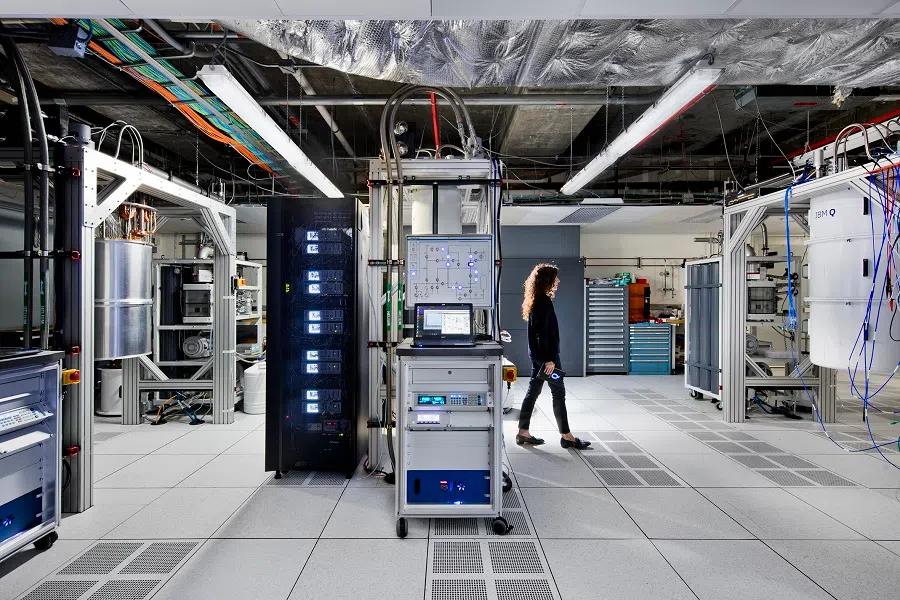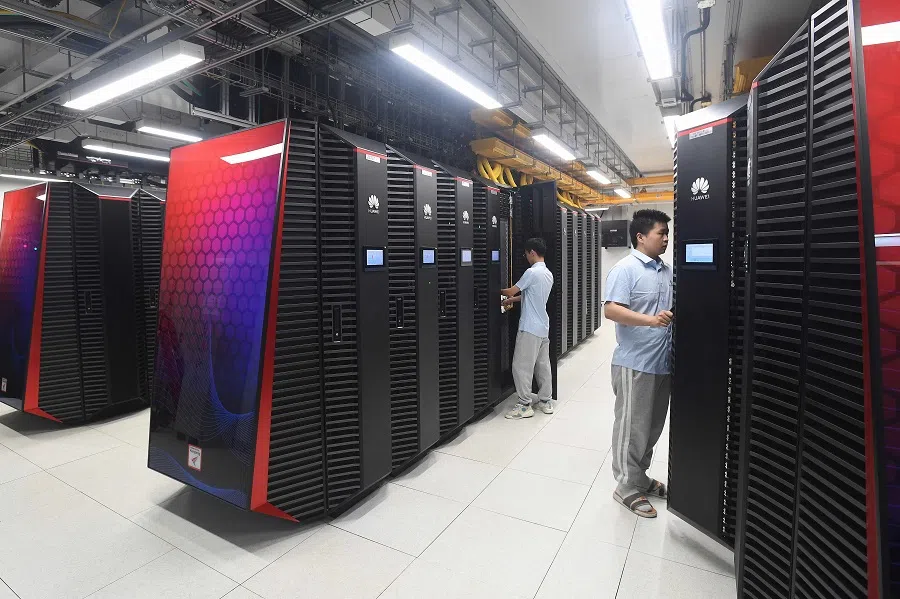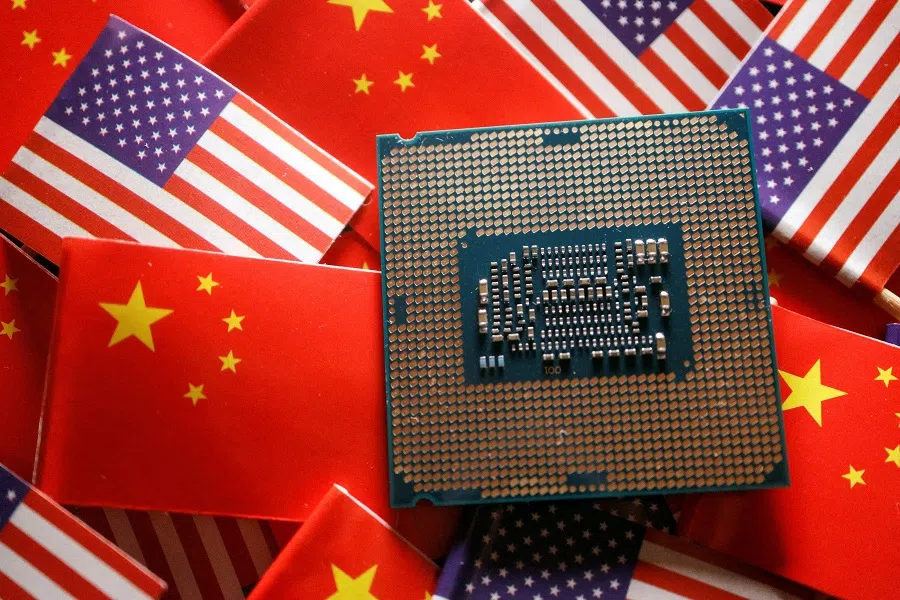Quantum tech isn't a typical tech race
With heightened tensions between the US and China, it's easy to reach for Cold War analogies, says science journalist Dan Garisto. But the quantum race is not like the space race, or most other tech races. That's because quantum tech - despite the name - is more science than technology. If quantum tech is in its infancy, it should not be viewed in the same light as semiconductors and other currently critical technology. In fact, seen as science and not a deployable technology, quantum tech leaves much scope for cooperation.

In 2017, Chinese researchers used Micius - the world's first "quantum satellite" - to create an unassailable, secure video call between Beijing and Vienna. The feat demonstrated China's leadership in quantum communications and since then, comparisons to the launch of the first satellite 60 years ago have proven irresistible. I've been guilty of making the comparison too. Like Sputnik, wasn't Micius the start of a new technology race between two great powers?
With heightened tensions between the US and China, it's easy to reach for Cold War analogies. But the quantum race is not like the space race, or most other tech races. That's because quantum tech - despite the name - is more science than technology. Micius, for example, is essentially a physics experiment, and "computer" is almost a misnomer for today's quantum computers, which have none of the typical functions we associate with our computers which run reliably on classical physics.
National security risks of quantum tech overstated
Some of the confusion stems from embellished claims of what quantum tech will accomplish. Today's rudimentary quantum networks, we are told, will lead to a quantum internet that will tap into the power of quantum entanglement to revolutionise all of our communication. The standard sales pitch for quantum computers cites their potential for improved machine learning, better logistics and the creation of groundbreaking new materials. Some quantum PR has been bold enough to claim that quantum computers will help solve climate change. Big, if true.
This talk is backed up in part by serious capital investments by both governments, as well as private industry. IBM, Google and Microsoft have all put serious capital into developing quantum technology. Quantum ventures are also being funded by banks, hospitals, and airlines. A McKinsey report predicts - using unclear methods - that quantum computing alone will be a 1.3 trillion-dollar industry by 2035.

Before the money spoke, quantum tech's original claim to fame, which brought it from the esoteric theoretical playground of physicists to the attention of the US Department of Defense, was a 1994 paper by the mathematician Peter Shor. In it, Shor proved a quantum computer could quickly find prime factors (e.g. 77 is composed of two prime factors, 7 and 11). This seemingly mundane fact is critical, because the security of public key encryption schemes rests on the fact that classical computers are slow to find prime factors. The implication of Shor's algorithm is that future quantum computers could, in theory, break the encryption that protects a whole host of data - passwords to websites, emails, bank transactions, etc. Almost overnight, quantum tech became an item of national security.
Claims that quantum tech will help solve climate change are so hyperbolic that they should be categorised as snake oil.
Three decades later, the fear that quantum computers will destroy digital security is still frequently invoked as an argument for quantum computers, or quantum communications technology like Micius which would protect against. But these concerns lack crucial context. Currently, quantum computers have, at most, a few hundred error-prone qubits (the quantum analog to bits). In 2019, an attempt to factor the number 35 using a quantum computer failed because of these errors. Estimates vary, but most analyses find that millions of qubits will be needed to implement Shor's algorithm to break public key encryption, which uses numbers much, much larger than 35. (Moreover, computer scientists have already identified encryption schemes that are resistant to quantum attacks, and will be rolling them out soon.)
These caveats apply broadly to quantum tech: it is error-prone, requires tremendous scaling, and is vastly outperformed by existing classical solutions. Quantum computers have no near-term uses for banks, hospitals, or airlines. Claims that quantum tech will help solve climate change are so hyperbolic that they should be categorised as snake oil.
... if quantum tech is in its infancy, it should not be viewed in the same light as semiconductors and other currently critical technology.
Hype around quantum tech and impact on geopolitics
All this hype around quantum tech has distorted attempts to fit it into geopolitical analysis. The Australian Strategic Policy Institute, for example, included quantum computing as a "crucial area" in its assessment of 44 technologies - alongside categories like vaccines, semiconductors, and AI. During a US congressional hearing, "Advancing American Leadership in Quantum Technology", members of Congress raised similar concerns to a panel of experts, asking about export controls on quantum tech, China's progress with a quantum network, and why the US hadn't launched a competitor to Micius.
The fact that the US has fallen behind in this area of quantum tech is of little consequence.

Some discussions of quantum technology include caveats to temper the hype. A Foreign Policy op-ed from March titled "The U.S. Wants to Make Sure China Can't Catch Up on Quantum Computing" notes that "the field is still in its infancy and current quantum computers are error prone and lack any real applications". But the piece does not grapple with what this means: if quantum tech is in its infancy, it should not be viewed in the same light as semiconductors and other currently critical technology.
In this way, the comparison of Micius to Sputnik is actually helpful. During the '60s, the ensuing space race changed the relationship between the US and the USSR. Rocketry revolutionised warfare and communications. The advent of GPS even changed how we do agriculture. With the eventual arrival of humans on the Moon, the space race changed our place in the cosmos. It has been seven years since Micius launched and nothing like this has happened. The fact that the US has fallen behind in this area of quantum tech is of little consequence. After all, from a pragmatic user's perspective, Micius did not do anything new. Encrypted video calls are commonplace to millions of Zoom users every day.
More recently, China has leapt ahead in the development of photonic quantum computers. Again, "computer" is a misnomer - these devices are constructed with an intricate arrangement of lasers and mirrors to create a racetrack for photons, particles of light. Because of this, they can solve only a limited type of problems. In May, a team at the University of Science and Technology of China (USTC) published their latest results: it took their photonic quantum computer less than a second to solve a problem that would have taken a classical supercomputer five years. Amazing! The US, meanwhile, having specialised in other kinds of quantum computing architectures, is not that focused on photonic quantum computers. The gap does not seem to matter in the grand scheme of things.
Relegating quantum tech to the same degree of secrecy and concern as nuclear weapons or other military technology would likely prevent this, leading to less healthy competition, and, quite possibly, slower progress.

The lack of practical implications does not mean quantum tech is scientifically uninteresting - far from it. Researchers like the scientists at USTC are continually learning new things about the theoretical computer science that governs the way we solve problems, and the physical systems that quantum tech is built on. From my perspective as a physics journalist, some of the most productive and exciting scientific advances in the past few years have been in quantum tech. The back-and-forth battle to see whether quantum computers or classical computers are faster at solving a problem like generating random numbers, for instance, is scientifically fascinating. As a matter of practical technology, it's useless.
Science cooperation
Seen as science and not a deployable technology, quantum tech has a vastly different role on the geopolitical stage. Science has far greater room for collaboration - researchers at academic institutions correspond and work together, fostering ties that can be used for diplomacy. The US and China have maintained strong research ties for decades, thanks in part to a 1979 agreement between the two governments that has enabled researchers to work together. In spite of recent tensions, the US and China remain each others' primary research partners.
As discussions about quantum tech's geopolitical relevance continue, it's worth keeping the scientific side in mind. Quantum researchers from the US and China still benefit from open channels of communication. Relegating quantum tech to the same degree of secrecy and concern as nuclear weapons or other military technology would likely prevent this, leading to less healthy competition, and, quite possibly, slower progress.
Related: China-based hacking groups: Keeping critical infrastructure cyber-safe | China's strides in AI: Promising but not without its challenges | Micron ban: Will there be a winner in the China-US chip war? | Tech war: The US's mimicking of Chinese policies is fundamentally flawed | AI is us, we are AI | How geopolitics will drastically change chip manufacturers' ecosystem





